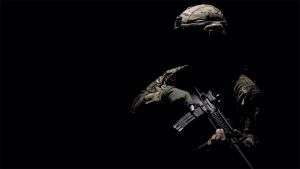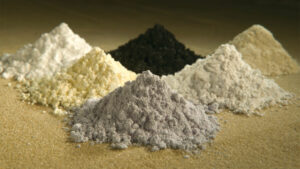Let’s just say that our old friend Smokey Bear wouldn’t be too happy with the Canadians this past week. And these fires are likely only the beginning of a very long summer of low air quality.
We’re getting hit with the trifecta right now. Wildfires (which are as essential a part of BC’s natural ecosystem management as they are to California’s chaparral) in Northern Alberta and Eastern BC, fires (which happen very rarely) in Quebec and the Maritime provinces, and agricultural fires (yearly slash and burns) in Mexico. These are all large enough to cover a vast swath of the US with smoke individually; adding insult to injury, the smoke from multiple fires is overlapping at different elevations.
So can any of this be attributed to climate change? I’m going to say yes…because it’s only June. Some of these fires started in MAY. Barring an unprecedented wet summer, we’ll be dealing with this for months to come.
It may be time to upgrade those filtration systems if you haven’t already.
Prefer to read the transcript of the video? Click here
Here at Zeihan On Geopolitics we select a single charity to sponsor. We have two criteria:
First, we look across the world and use our skill sets to identify where the needs are most acute. Second, we look for an institution with preexisting networks for both materials gathering and aid distribution. That way we know every cent of our donation is not simply going directly to where help is needed most, but our donations serve as a force multiplier for a system already in existence. Then we give what we can.
Today, our chosen charity is a group called Medshare, which provides emergency medical services to communities in need, with a very heavy emphasis on locations facing acute crises. Medshare operates right in the thick of it. Until future notice, every cent we earn from every book we sell in every format through every retailer is going to Medshare’s Ukraine fund.
And then there’s you.
Our newsletters and videologues are not only free, they will always be free. We also will never share your contact information with anyone. All we ask is that if you find one of our releases in any way useful, that you make a donation to Medshare. Over one third of Ukraine’s pre-war population has either been forced from their homes, kidnapped and shipped to Russia, or is trying to survive in occupied lands. This is our way to help who we can. Please, join us.
CLICK HERE TO SUPPORT MEDSHARE’S UKRAINE FUND
CLICK HERE TO SUPPORT MEDSHARE’S EFFORTS GLOBALLY
TRANSCIPT
Hey everybody. Peter Zeihan here coming to you from cloudy Colorado. Today we’re going to talk about this horrible smoke that is hitting most of the country. Basically, if you are east of the front range, you’ll experience it in some way with particularly dense clusters in places like the American Northeast. I hate to say it, folks, but this is just going to be the beginning of a very, very, very long summer of low air quality.
We’ve got three things happening at the same time that have never happened together before. The first, which is something that happens every few years, is we’ve got forest fires in northern Alberta and northeastern British Columbia, which is generating a significant amount of smoke that is currently hitting the Great Plains in the Midwest. Second, and this is something that happens very rarely. We’re getting extensive fires in both Quebec and in Canada’s maritime provinces, which is generating most of the smoke that is hitting the American northeast. And then third, something we get every year is we’re at that part of the season where the Mexicans are doing a slash and burn preparation for certain types of fields. So we’ve got more smoke coming up from the south, which is primarily hitting Texas right now.
Anyway, all three of these are big enough that they have the potential to have a huge swath of coverage for the continent. And in a lot of cases, we’re seeing overlapping layers. Now, smoke and fire should not automatically translate into poor air quality because it really matters what the elevation is oftentimes. A few days after the smoke leaves the source of the fire, it drifts up. And when it does that, it still makes your skies kind of crappy. But you’re not dealing with those PMI issues because we’ve got three different sources in three different geographies. We’re getting smoke at multiple elevations, which is making it more of a problem. So really, all we’re waiting now for is for the Californians to have smoke, but luckily they have had the wettest year on record so far. So the chances of me going backpacking in Yosemite this year are very low. There’s still 40 feet of snow on the ground at high elevation. And so they’re probably going to have a relatively wet and therefore not fire filled summer.
For those of you who are concerned about climate change, is that part of this? I’m going to have to say yes for the simple reason that it’s only June and the Albertan and the Quebec fires, you know, started in May. We’ve never had wildfires on this scale this early in the season, which means barring some really atypical summer precipitation in the Great White North, we’re going to be dealing with this smoke and these fires all through June and July and August and September until we get snow. We learned that over and over and over again with the California fires. You basically have to wait for Christmas for this stuff to get put out completely. So if you haven’t put a filtering system for your home back in your Amazon cart, now might be the time. If you’re living in an apartment or you don’t have a traditional HVAC system. There are a number of models of standalone air filters. You might want to consider investing in those because this is going to be kind of a crappy summer if you are east of the front range. I can see the smoke from my neighborhood, but luckily the mountains are providing enough of a bulwark that I’m okay here. Of course I am going to Canada here in a few hours and then all bets are off.
Alright. That’s it for me. You guys take care. Stay safe.








